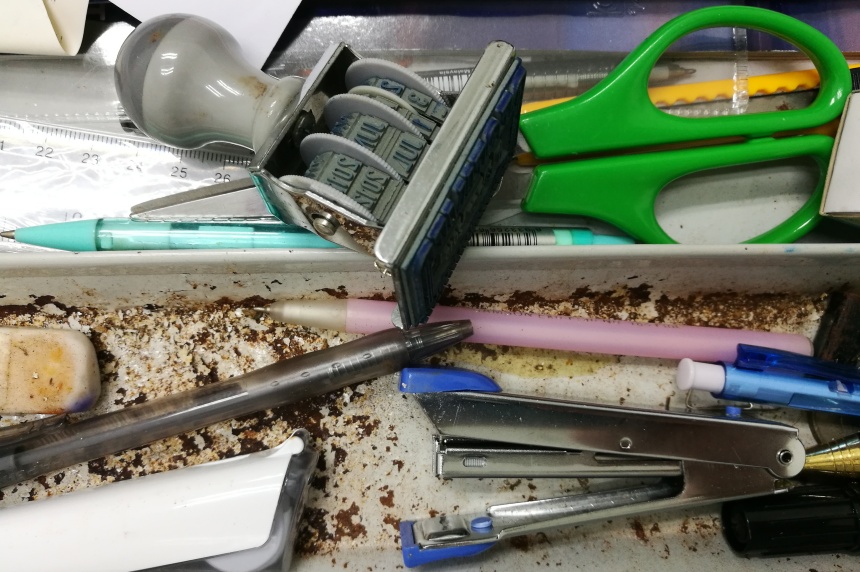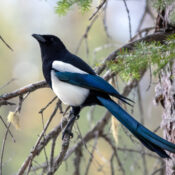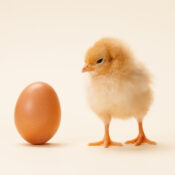Managing editor and logophile Andy Hollandbeck reveals the sometimes surprising roots of common English words and phrases. Remember: Etymology tells us where a word comes from, but not what it means today.
Imagine you’re sitting at your desk working, and suddenly the electricity goes out — for the sixth time this week. You’re fed up and decide it’s time to compose an angry letter to the electric company. But no electricity means no computer, which means no email. What do you do?
You go the old-fashioned route: You place a blank piece of paper in the middle of the desk, slide open that wide center drawer, and see a pen and a pencil there, waiting for you to choose your weapon.
And for some reason, that’s when you notice how similar the words pen and pencil are. Considering that they’re both writing utensils and that the word pen is contained within the word pencil, you figure the two words must be related somehow.
But no — pencil and pen aren’t related at all, and it’s only by chance and the vagaries of language evolution that they both ended up in your desk drawer.
When pencil entered Middle English — and it was spelled in a variety of ways, including pinsel, pensel, and pencel — it referred to a small, fine brush that an artist might use for intricate details on a painting or manuscript illustration. The word came from Old French pincel, the name for the same kind of brush. This in turn can be traced back to the Latin penicillus, a diminutive of peniculus “brush.”
Peniculus is itself a diminutive of another Latin word, which has a modern use: penis, meaning “tail” in Latin. If you squint, the modern English use of that Latin “tail” isn’t too far off from its original meaning, just maybe a little mislocated.
A pencil, then, whether the rigid graphite type or the artist’s brush, is a “tiny little tail” etymologically. And there’s no link between these tails and the word pen, whether you’re talking about the ink type or the pig type.
The first ink pens were made from bird feathers — which are hollow at the base and can hold ink. Old French had two words for “feather,” pene (a long feather, deriving from Latin petna) and plume (a soft or down feather, from Latin pluma). Because pens were made from feathers, both of these words were also used to indicate early ink pens, and both found their way into English in the 13th and 14th centuries.
Those two words developed in opposite directions in English and French, though. In French, penne (the modern spelling) refers only to feathers, while plume can still indicate a pen, especially a quill pen. In English, though, the writing tool became a pen, and plume was relegated to feathers or feather-like things.
The other type of pen — where one might confine cows, pigs, or small children — comes directly from the Old English penn and bears no relation to the feathers that led to the ink pen, or for that matter to paint brushes, tails, or reproductive organs.
By the time you choose to write your rant with a pen or pencil, the electricity has come back on. The anger is still there, but writing a whole letter seems like a lot of work, and the recent outage has already set you back on the other tasks you were hoping to complete today. So you slide that center drawer closed on your writing utensils, thinking it’ll be simpler to just complain about the electric company on Twitter … assuming you can boot up your computer before the power goes out again.
Featured image: Shutterstock
Become a Saturday Evening Post member and enjoy unlimited access. Subscribe now




Comments
Tony Hanson: With surnames, you can’t count on spelling to stay the same or to tell you a lot. I doubt that pencils and the Pencil name are related. It could be an Ellis Island name (a misnomer – most mistakes in name spelling occurred at the point of departure, not arrival) – a name that was misspelled on travel manifests for immigrants coming to America and that officially “stuck” after they got here. You can also find the surnames Pencille, Pencelle, Pincelli, and Pensel (German for “pendulum” according to Google translate), plus other close ones like Pence and Penzer. Any of these could have been “simplified” to a word that the hearer already knew.
Great post! Any idea why someone would have the last name :Pencil?
I’m having a ‘what came first? Chicken or Egg’ moment.
One of your best columns yet, Andy. Before now, I definitely thought pen and pencil had to be related due to their very similar or even same ‘job’ depending on what and how something’s being written. When the word pencil entered Middle English, I’m surprised a 4th variation of ‘penisel’ wasn’t in there. Just saying it could have. Actually, no. Too Italian with that third syllable.
I do love the words ‘penne’ and ‘plume’. My 5th grade teacher would occasionally write things at her desk using a conventional pen with a blue/green/yellow fancy feather attached (by tape). An 18th century lady at heart. 5th grade was the first time we did our school work with pens instead of pencil only.
She insisted we use no noisy “click” pens of any kind. Her recommendation was a pen “like a Lindy.” This was the first day of school, so that’s what I got. A lot of the other kids got Bic’s, which I used too, but really loved that white Lindy Steno Pen with the seal balancing a ball on the tip of his nose. They were a local company in nearby North Hollywood. Unfortunately there was a lot of REALLY ugly legal crappy crap that went down between Bic and Lindy starting in the 70’s that drove the latter out of business. Now I’m sorry I looked up what happened online!